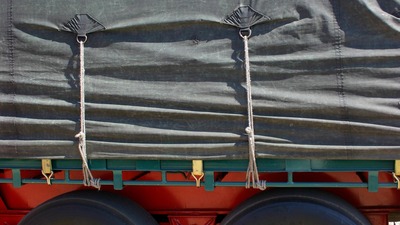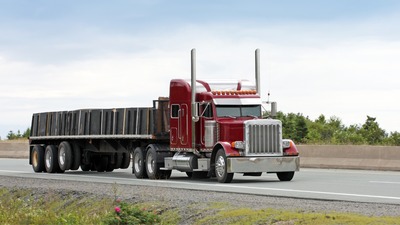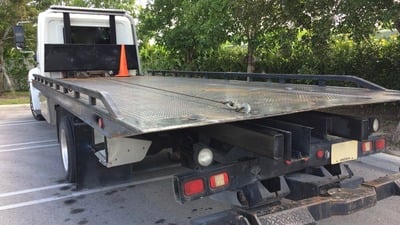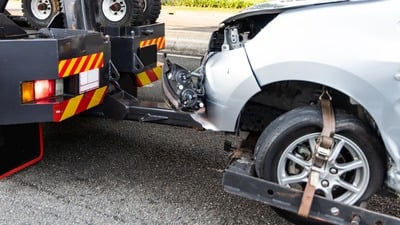Introduction to the Importance of Using Tarps Covers for Loads
Securing your load with tarp covers isn't just a suggestion in Detroit; it's a necessity. As a city bustling with industry and transport, using tarp covers is crucial for safety and compliance. Why is it so important? For starters, tarps protect your items from the unpredictable Michigan weather, keeping your cargo dry and sheltered from rain, snow, or the harsh sun. More than just a shield, they keep debris from flying out and causing hazards on the busy Motor City roads. Legally, it's your responsibility to make sure your load is secure; failing to properly use tarps can lead to fines or worse, accidents. It's not complicated – a strong, well-fitted tarp saves you trouble and ensures your goods arrive just as they left, pristine and unspoiled.
The Various Types of Tarps Covers Available
When you're looking to secure a load, whether it's for a cross-country haul or just across Detroit city, knowing your tarp options is crucial. Tarps come in a range of materials each suited for different jobs. The lightweight polyethylene tarps are waterproof, mildew-resistant, and easy on the wallet – great for everyday use. Canvas tarps, the durable guys, handle heavy-duty jobs, offering breathability to prevent condensation and rust on your cargo. For the toughest tasks, like hauling industrial equipment, vinyl tarps are the way to go. They resist abrasion and extreme weather conditions like a champ. Then there are specialty tarps like mesh tarps, perfect for landscaping loads because they reduce wind resistance but keep debris in check. So, choose the right tarp and secure that load, Detroit style.
Assessing Your Load: Choosing the Right Tarps Cover
Before you secure your load with a tarp in Detroit, look at what you're covering. Is it bulky? Does it have sharp edges? Being smart upfront can save you heaps of trouble later. Your tarp needs to match the job. If you're covering garden waste or such, a lightweight poly tarp could do. They're cheap and cheerful but they handle wetness and a bit of a beating. Now, if you're dealing with abrasive materials or you’re on the road a lot, consider heavy-duty canvas or vinyl tarps. These beasts resist tears and laugh at weather, but they'll hit your wallet harder. Remember, shapes matter. A larger, flat tarp works wonders for flatbeds, while fitted tarps hug your load like a glove. Check for grommets too. These are the metal rings on the edges where you lash the tarp down. More grommets mean more tie-down spots, which means less flapping and a safer drive down I-94. Choose wisely and you'll keep your goods in top nick, and everyone on the road's happy.
Essential Tips for Securing Loads with Tarps Covers in Detroit
Listen up, you need to get your load secured right, especially in a place like Detroit with all its hustle. Here's what you gotta do. First up, you pick the right tarp. Make sure it's sturdy enough for the Motor City’s weather. You don't want it flapping or tearing off when you're hitting the roads. Next, cover your load smooth and tight; like you're tucking in a baby, but with more muscle behind it. Now, get those straps and bungees on. Tighten them like they owe you money, but don't go overboard, you don't wanna damage your gear. Anchor points are your best friends; use 'em. The more, the merrier, so your load's not playing peekaboo down I-75. Check the tarp for any sneaky rips or weak spots, patch 'em up if you gotta. And here's a Detroit pro tip: When it rains, and you know it will, angle your tarp so water doesn't collect. You aren’t carrying a swimming pool. Once you hit the road, pull over after a bit and give everything the once-over. Adjust if anything's looking like it's trying to make a run for it. Safety is king on these streets. Stick to these tips and you'll keep your load under wraps, no drama.
The Role of Tarps Covers in Ensuring Road Safety
Tarps covers hold the line when it comes to road safety in Detroit – they're not just about keeping your load under wraps. They stand as the first defense against debris falling off trucks and creating hazards on the road. Think of these covers as a non-negotiable road rule, like wearing a seat belt, but for your truck's cargo. The law steps in too; in most places, it's a legal must to secure your load with a tarp. Ever been behind a truck and got spooked by something flying off towards you? That's what we're avoiding. Unsecured loads can lead to accidents, damage to other vehicles, and, worst-case scenario, injury to other road users. So, slapping on a quality tarp isn't just about dodging fines or staying on the right side of the law; it's about looking out for your fellow driver. Plus, a well-tarped load keeps your goods in prime condition, away from the whims of weather or the grime of the streets. It's a simple move that carries serious weight on the safety scales.
Step-by-Step Guide to Properly Secure Your Load with a Tarp
First, choose the right size tarp. It must be large enough to cover your entire load and have enough excess to secure it at multiple points. Lay the tarp flat over the load, ensuring it extends over the sides evenly. Next, use strong cords or straps to tie down the tarp at every grommet or reinforced loop. Start from the front going to the back to avoid any flaps that can catch the wind. Make sure all ties are pulled tight and secured properly to prevent the tarp from billowing during transport. Lastly, double-check every tie-down point. If you see any loose ends or potential tears, address them right away. A well-secured tarp keeps your load safe and prevents road hazards for everyone.
Local Regulations in Detroit for Using Tarps Covers on Loads
Detroit wants you driving safe, especially when you're hauling stuff around. That means making sure everything's tied down tight with a good tarp cover. Now, here's the deal: the Motor City has rules to stop stuff from flying off your truck and causing trouble. You gotta cover your load with a tarp if it could fly out or make a mess on the roads. If you're driving a commercial vehicle, you better check the Commercial Vehicle Enforcement Division's requirements because they're extra strict. The fines? They ain't cheap. Get caught with an uncovered load and you could be shelling out anywhere from $50 to a few hundred bucks. Plus, if your flying debris goes wild and lands someone in trouble, you could be on the hook for some serious legal headaches. So, do it right, use that tarp, and keep Detroit's roads safe.
Maintenance and Care for Your Tarps Covers
Taking care of your tarp covers can save you money in the long run and keep your loads secure during transport. If you look after your tarps, they'll serve you well. First things first, always clean your tarps after use. Shake off any debris, hose them down, and let them dry completely to prevent mold and mildew. Avoid using harsh chemicals that can weaken the fabric. Next, check for tears or holes regularly. Small rips can quickly turn into big problems if left unchecked. Get any damage repaired promptly to ensure your tarp remains effective at protecting your loads. Store your tarps in a cool, dry place away from sunlight when not in use. UV rays can degrade the material over time, so keeping them out of the sun extends their life. Also, don’t just toss them in a pile. Fold or roll them neatly to avoid creases that could cause the material to crack. Lastly, secure your tarps tightly when in use to avoid them flapping in the wind, as that motion can cause stress and eventual tearing. Treat them right, and your tarp covers will keep on trucking along with you for many hauls to come.
Common Mistakes to Avoid When Using Tarps Covers
When you're tossing a tarp over that load in your truck bed, make sure you don't bungle it up. Folks often think they can just throw the tarp on, tie it down, and hit the road. Not so fast. Making sure your cargo's snug under that tarp means keeping your gear—and the drivers around you—safe. Here's where people mess up. First, they skimp on the tie-downs. You need enough ropes or straps so the tarp doesn’t flap around like a flag in a tornado. Secure it at multiple points, tight and right, so it doesn’t tear or sneak off when you’re doing sixty on the freeway. Another boo-boo? Getting a tarp that’s too small. If it can’t cover your stuff with some to spare, you might as well not bother. And here’s a biggie—ignoring the tarp’s condition. A tarp with more holes than Swiss cheese won’t stop water, dirt, or prying eyes. Before you cover your load, give that tarp a once-over to make sure it’ll do its job protecting your goods. Keep these tips in mind, and don’t make these all-too-common mistakes. Tarp covers can be a trucker’s best friend—when used right.
Conclusion: Summarizing the Best Practices for Tarps Covers Use
When it comes to using tarp covers in Detroit, it's clear-cut. Always prioritize safety and efficiency. Remember, the right tarp can shield your cargo from harsh weather, debris, and prying eyes. Make sure to choose a tarp that fits snugly over your load and secure it firmly with strong tie-downs. Paying heed to local regulations is not just about following the law, it’s about road safety for everyone. Moreover, investing in high-quality tarps and the correct fastening tools pays off by protecting your cargo and saving you from potential fines. Regular inspections of your tarp and gear will save you from headaches down the road. It’s about being smart and practical. Tie it right, cover it tight, and you’re all set for the haul. Keep these tips in truck, and you’ll keep your loads secure, no matter where you're headed in Detroit or beyond.





